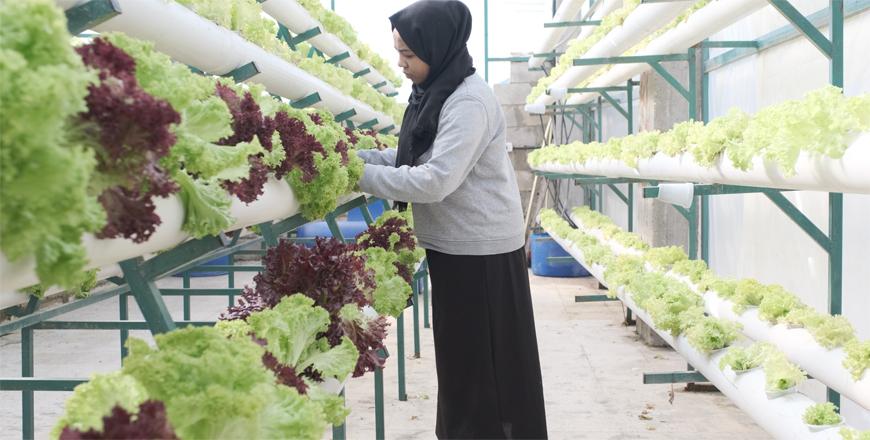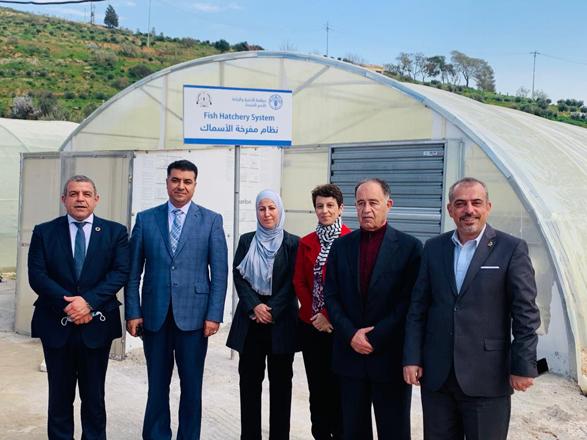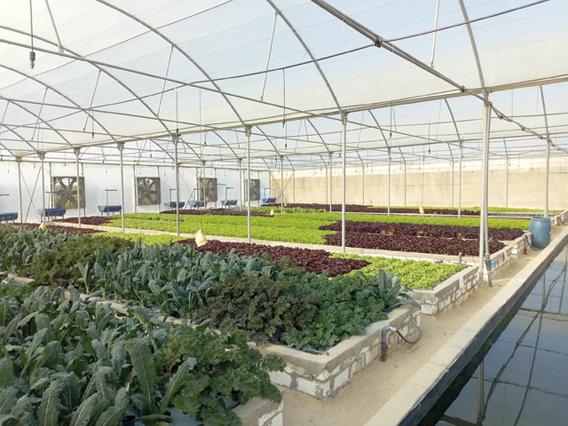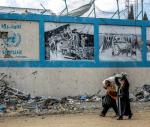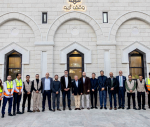You are here
‘Green Rooftops’ in Jerash Camp grows seeds of sustainable entrepreneurship
By Rayya Al Muheisen - Jun 20,2021 - Last updated at Jun 20,2021
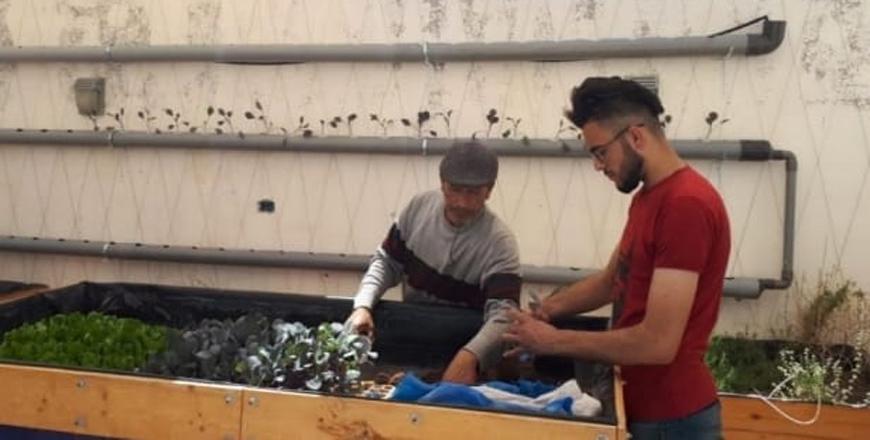
An environmentally sustainable project titled ‘Green Rooftops’, implemented by UNICEF Jordan in Jerash Camp aims to stimulate the economic engagement of the most vulnerable young people in the camp (Photo courtesy of UNICEF)
AMMAN — An environmentally sustainable project titled “Green Rooftops”, implemented by UNICEF Jordan in Jerash Camp aims to stimulate the economic engagement of the most vulnerable young people in the camp, according to a report from the UN agency.
The project pilots hydroponic and aquaponic systems in Jerash Camp, also known as Gaza Camp, the report said.
Hydroponic farming is about growing plants in the nutrients they need instead of soil, it can be used year-round. Aquaponic farming is about growing fish and plants together in one integrated system such that they have a symbiotic relationship where the fish provide nutritious elements for the plants and the plants filter the water for the fish, according to online sources.
The project is designed to establish a self-sustaining circular system, where inputs and outputs remain within the camp in order to enhance food-security and boost local economy.
This innovative approach helps create opportunities for local empowerment, economic development and healthy diet for the participants and their families, the report said.
The initiative aims to provide 100 young women and men (minimum 50 per cent female) with the skills and knowledge needed to run, sustain and manage the hydroponic and aquaponic rooftop gardens.
According to Greening the Camps NGO, Jerash camp is the poorest among the 10 Palestine refugee camps in Jordan, with 52.7 per cent of residents living below the poverty line, and 88 per cent not having health insurance. Women participation in the economy of the camp is extremely low with 81 per cent of women unemployed.
The refugee camp lacks the necessary fertile lands. This scarcity of green space in combination with a threatening shortage of water in the region has caused a severe disconnection of the current generation with agriculture, according to Greening the Camps website, which is an NGO specialising in the design, development, construction and maintenance of productive urban farms in refugee camps and dense urban areas.
According to the Organisation for Economic Cooperation and Development (OECD), creating self-employment programmes holds great potential to impact the lives of young refugees in the camp.
Related Articles
AMMAN — Though the streets of Jerash camp illustrate its high poverty level, the rooftops above hide oases of hope and economic development.
AMMAN — The Representative of the Food and Agriculture Organisation of the United Nations (FAO) in Jordan Nabil Assaf, Agriculture Minister
AMMAN — The future of agriculture is in hydroponics and aquaponics, and utilising agri-tech will help local agriculture thrive, say experts.


